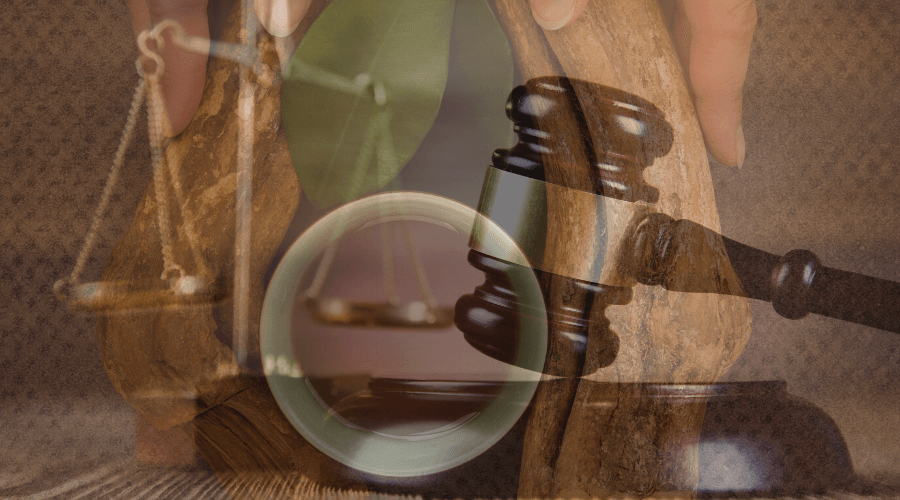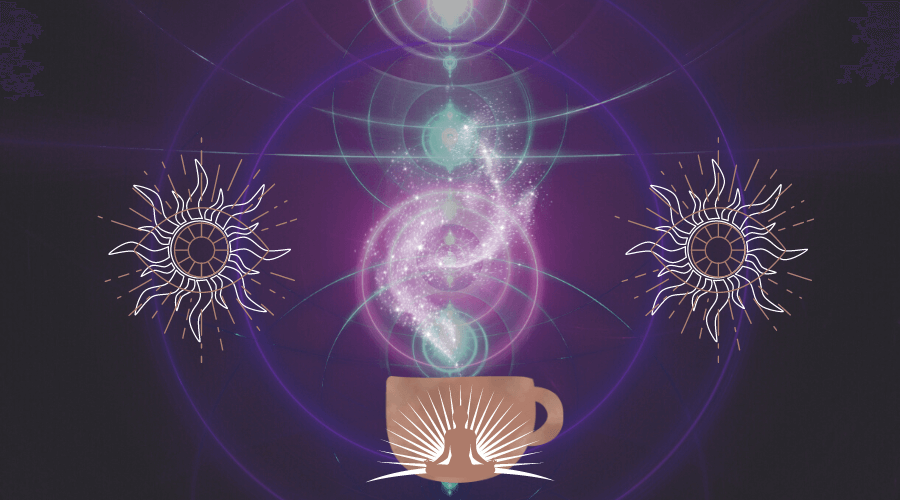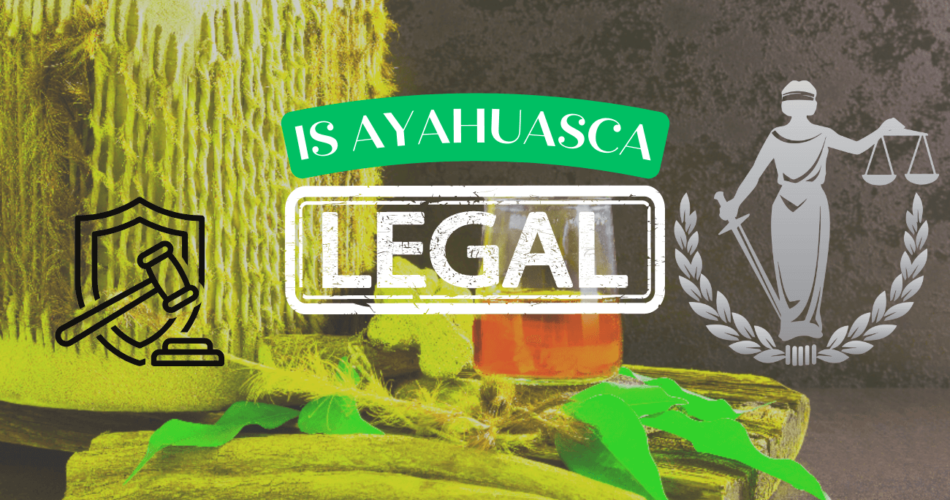Hey, fellow knowledge seekers! Is Ayahuasca legal? – a question that’s been popping up in the U.S. more frequently. Especially, with Ayahuasca ceremonies on the rise. So, how about we take a little trip to enlighten you?
Too Long; Didn’t Read
- Ayahuasca’s legal status in the U.S. is complicated. It can be used legally in specific religious contexts, but not so much outside of them. ✨
- Ayahuasca retreats are legal under certain circumstances (in the U.S. mostly organized by religious groups). ✨
- Despite DMT’s presence in Ayahuasca, Ayahuasca is classified separately. ✨
Is Ayahuasca Legal in the U.S.?
The legal status of Ayahuasca is as complex and tangled as the Amazonian vines it’s derived from. In the U.S., Ayahuasca is not explicitly illegal. Here’s the twist, though; Ayahuasca contains DMT (Dimethyltryptamine), a powerful psychedelic that is a controlled substance under federal law. So, the question, “Is Ayahuasca legal?” has a little caveat: it’s a gray area due to the presence of DMT.
Despite the presence of DMT, legal repercussions for Ayahuasca use aren’t common. This might be due to the traditional and ceremonial contexts in which it’s often consumed. However, this doesn’t mean you can freely use this potent plant medicine without legal concerns. Always tread lightly, my friends!

The Legal Use of Ayahuasca (Religious Exemptions)
Now, here’s the interesting bit. There are religious exemptions that make Ayahuasca legal to use. Groups like the Uniao do Vegetal (UDV) and the Santo Daime Church have won landmark legal battles, allowing them to use Ayahuasca as a sacrament in religious ceremonies. It doesn’t mean, though, they can use it whenever and however (you can’t use it at home just because you’re a member of the church).
How did they win? Both groups argued that Ayahuasca is central to their spiritual practices, bringing them closer to the divine. And let us tell you, the U.S. courts agreed! They kind of didn’t have a choice, since freedom of religion is a constitutional right. So, in a religious context: is Ayahuasca legal? Yup!
Ayahuasca Retreats
Taking a turn towards Ayahuasca retreats, there’s a thriving industry around such experiences (particularly in countries like Peru, where Ayahuasca is completely legal). These retreats often offer guided Ayahuasca experiences, aiming to provide ayahuasca healings and personal transformations. Though it may sound a bit fishy to some people, these retreats aren’t drug dens. We’d describe it as a super chill reality break with a kick.
In the U.S., Ayahuasca retreats exist in a legal gray area. While not explicitly illegal, they operate under the radar due to the controlled substance status of DMT. To stay within the bounds of the law, some retreats connect themselves with recognized religious groups, providing a sort of legal umbrella.
Ayahuasca and Its Intricacies
To understand why it’s not fully legal, you need to know what it actually is. Originating from Amazonian tribes, Ayahuasca is a brew made from two plants: the ayahuasca vine (Banisteriopsis caapi) and a DMT-containing plant like chacruna (Psychotria viridis). This combination creates a potent psychedelic brew traditionally used for spiritual and healing purposes.
Ayahuasca’s effects are profound, often leading to intense introspective experiences. Users report transformative insights, emotional healing, and a deeper understanding of themselves. Of course, the intense experiences also come with risks, such as intense anxiety or fear (but to be honest, it rarely happens). So, folks, approach with respect!
The Research Perspective
Despite its legal complications, research on Ayahuasca’s potential benefits has grown in recent years. Scientists are investigating its use in treating conditions like depression and addiction. Early results are promising, though it’s still early days.

Fun Fact ✨
Before we finish, here’s a fun tidbit. The word ‘Ayahuasca’ translates to ‘vine of the soul’ or ‘spirit vine’ in Quechua, a native language of the Andean region. Isn’t it amazing how even the name captures the essence of this extraordinary brew?
So, is Ayahuasca legal? It depends. It’s a complex landscape, just like the Amazonian jungles it hails from. And just like navigating those dense forests, understanding Ayahuasca’s legality needs a well-guided tour. But hey, isn’t that part of the adventure?
Frequently Asked Questions
Does Ayahuasca Change You?
Well, buckle up, because Ayahuasca isn’t just a Saturday night at the movies – it’s more like an epic trilogy. People who’ve gone on this ride often report deep, transformative shifts in their personal perspectives. Imagine unearthing hidden truths, emotional healing, and self-understanding so profound, you’d make Socrates blush! Remember, though, this potent brew isn’t a magic potion for quick fixes. It’s a journey, one that’s as challenging as it is rewarding.
Is Ayahuasca Legal in Britain?
Ayahuasca in Britain, eh? Well, it’s a bit like trying to keep a cactus in the Arctic – not exactly the most welcoming environment. The big issue here is DMT – Ayahuasca’s psychoactive kick – which is a Class A drug under UK law. And Class A is the no-fun zone, making production, supply, and possession a no-go. So, in the Queen’s land, Ayahuasca is mostly off-limits.
What Countries Are Known for Ayahuasca?
Ayahuasca’s heartland is where the Amazon rainforest sings its green song – think Peru, Brazil, Ecuador, and Colombia. Peru in particular is the ‘it’ destination for Ayahuasca adventurers, with retreats that are to Ayahuasca what Hawaii is to surfing. These countries not only accept Ayahuasca, they embrace it, recognizing its deep cultural and traditional roots. So, if you’re thinking about an Ayahuasca escapade, these are your hotspots!
Similar Posts:
- Ayahuasca Retreat – USA Locations and Legal Considerations
- Ayahuasca – Death and Dangers
- Ayahuasca vs DMT: Are These Psychedelics the Same?
- Ayahuasca Visions: A Whole New World of Imagination
- How Is DMT Made? About Dimethyltryptamine, the “Spirit Molecule”
- Peyote vs Ayahuasca: How Do They Affect the Brain?
- Ayahuasca Diet: How to Prepare Yourself for the Ceremony?




